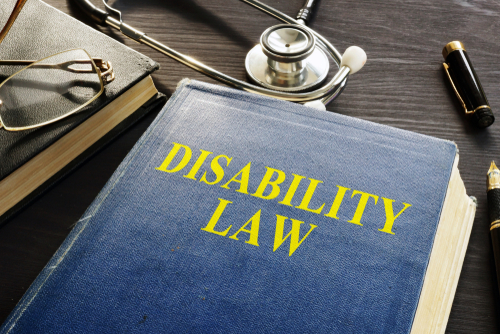Disability law 'tester' can sue hotel, despite no intentions of staying there, 1st Circuit rules

Image from Shutterstock.
A federal appeals court has ruled that a disabled person has standing to sue a hotel for failing to provide accessibility information, even though she does not intend to stay there.
The 1st U.S. Circuit Court of Appeals at Boston ruled for Deborah Laufer in an Oct. 5 opinion. The Article III standing issue has divided federal appeals courts, the 1st Circuit noted.
Laufer uses a wheelchair and a cane to move around. She can’t walk more than a few steps without help, the appeals court said. She also has limited use of her hands and is vision impaired. She is a self-proclaimed “tester” for violations of the Americans with Disabilities Act and has filed hundreds of ADA-related suits.
Laufer claimed an ADA violation in her suit against Acheson Hotels, which operates the Coast Village Inn and Cottages in a small Maine town. She couldn’t find accessibility information when she visited Acheson Hotels’ website and didn’t see such information when she visited third-party booking websites for the company.
An ADA regulation requires hotels to identify accessible features of their properties “with respect to reservations made by any means.”
Has Laufer “suffered a concrete and particularized injury in fact to have standing to sue in federal court?” the 1st Circuit asked. “We think the answer is yes.”
“A plaintiff’s deliberate choice to see if accommodations are obeying a statute doesn’t mean that her injury in fact is any less real or concrete,” said the appeals court in an opinion by Judge O. Rogeriee Thompson.
Acheson Hotels had cited a U.S. Supreme Court decision last year, TransUnion v. Ramirez, involving erroneous TransUnion credit reports that flagged the plaintiffs as potential terrorists, drug traffickers and other serious criminals. The plaintiffs had sued for violations of the Fair Credit Reporting Act.
One part of the lawsuit alleged that TransUnion provided information in the wrong format. Only one of the class action plaintiffs could sue on that ground, the Supreme Court said, because he was the only person to assert “downstream consequences” for the informational injury.
Despite that decision, the 1st Circuit said, it was bound to follow a 1982 Supreme Court decision, Havens Realty Corp. v. Coleman. The high court ruled in that case that a Black tester had standing to sue for Fair Housing Act violations when she was falsely told that no apartments were available to rent.
“What’s more,” the 1st Circuit said, “Laufer suffered a concrete injury in fact even if TransUnion ushered in a new era of informational injury. … We find that Laufer’s feelings of frustration, humiliation, and second-class citizenry are indeed ‘downstream consequences’ and ‘adverse effects’ of the informational injury she experienced.”
The case is Laufer v. Acheson Hotels.
Hat tip to Law.com and Westlaw Today, which had coverage of the decision.



